What kind of tree do cashews come from? Characteristics of cashew trees & cashew fruits
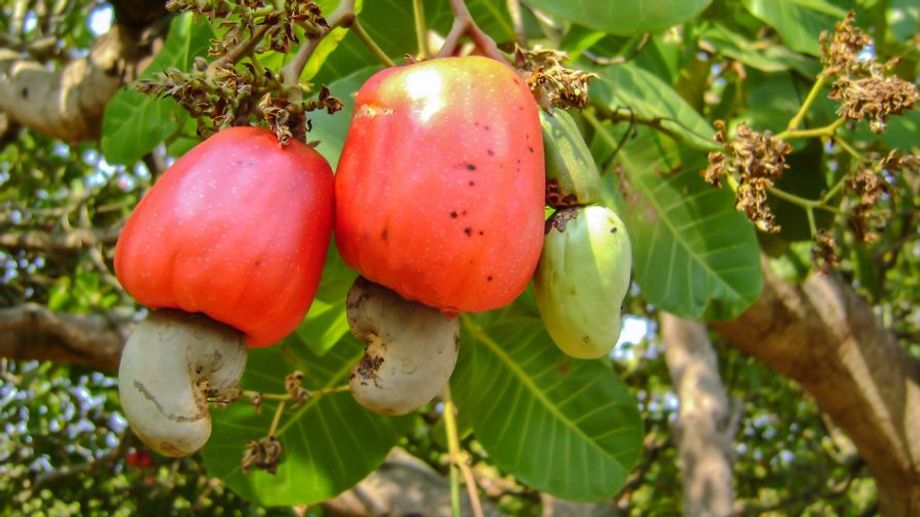
Mục lục
Do you like to eat cashews? Cashews are a nutritious nut with a delicious, fatty flavor. But do you know what kind of tree cashews come from? What are the characteristics of the cashew tree? What are the characteristics of the cashew fruit? If you do not know, let's explore interesting things about this tree in this article. You may be surprised by the benefits that cashews can bring to your health and life.
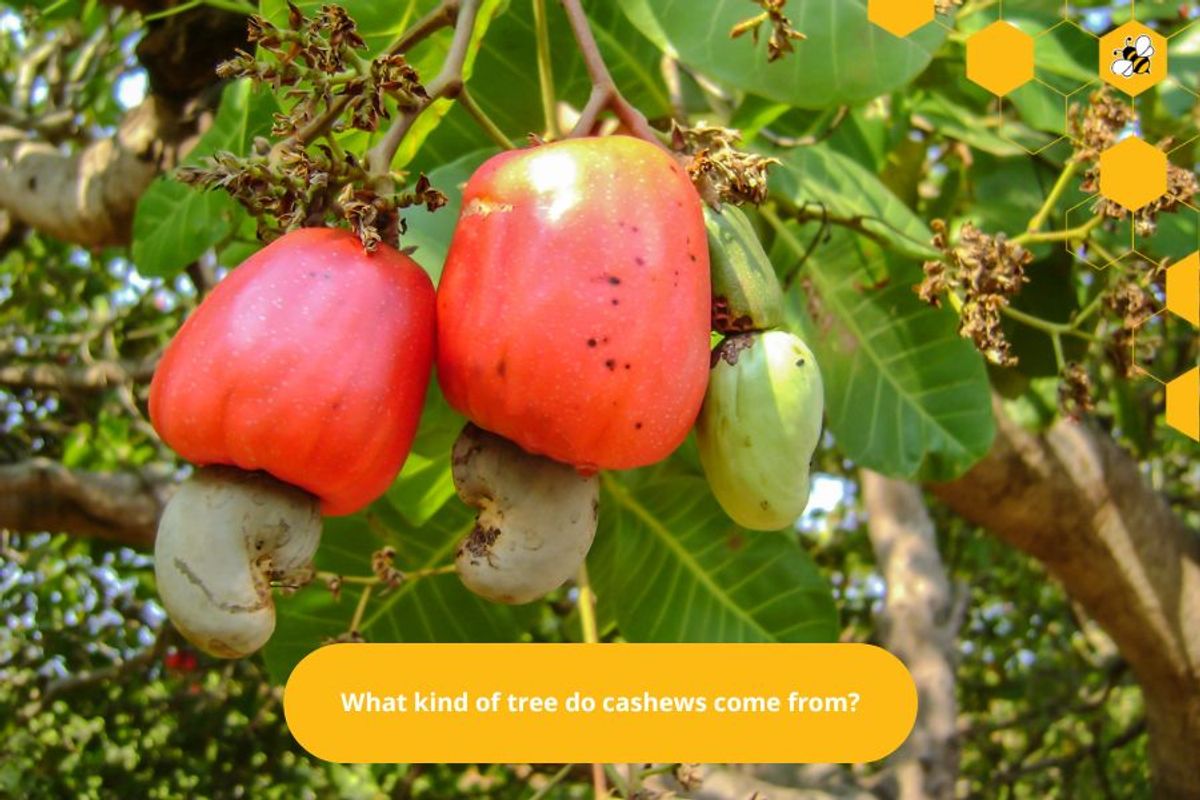
What kind of tree do cashews come from?
Cashews are the seeds of the cashew tree (Anacardium occidentale), a member of the Anacardiaceae family native to the coastal regions of northeastern Brazil. Mature cashew trees can grow up to 14 meters tall and can live for about 20-25 years. Cashews are a perennial industrial crop with high economic value, and the time from planting to the beginning of the cashew harvest will take from 2 to 3 years. Cashews are native to Brazil, growing naturally in the Caatinga, Cerrados, and Amazonian biomes. Today, cashews are grown all over the world, especially in Vietnam, India, Nigeria, Indonesia, the Philippines, Benin, Guinea-Bissau and Ivory Coast. Cashews are kidney-shaped nuts that come from the cashew tree – a tropical tree native to Brazil but now grown in many warm climates around the world. Cashews not only have delicious nuts but also have many nutritional values and benefits for human health.
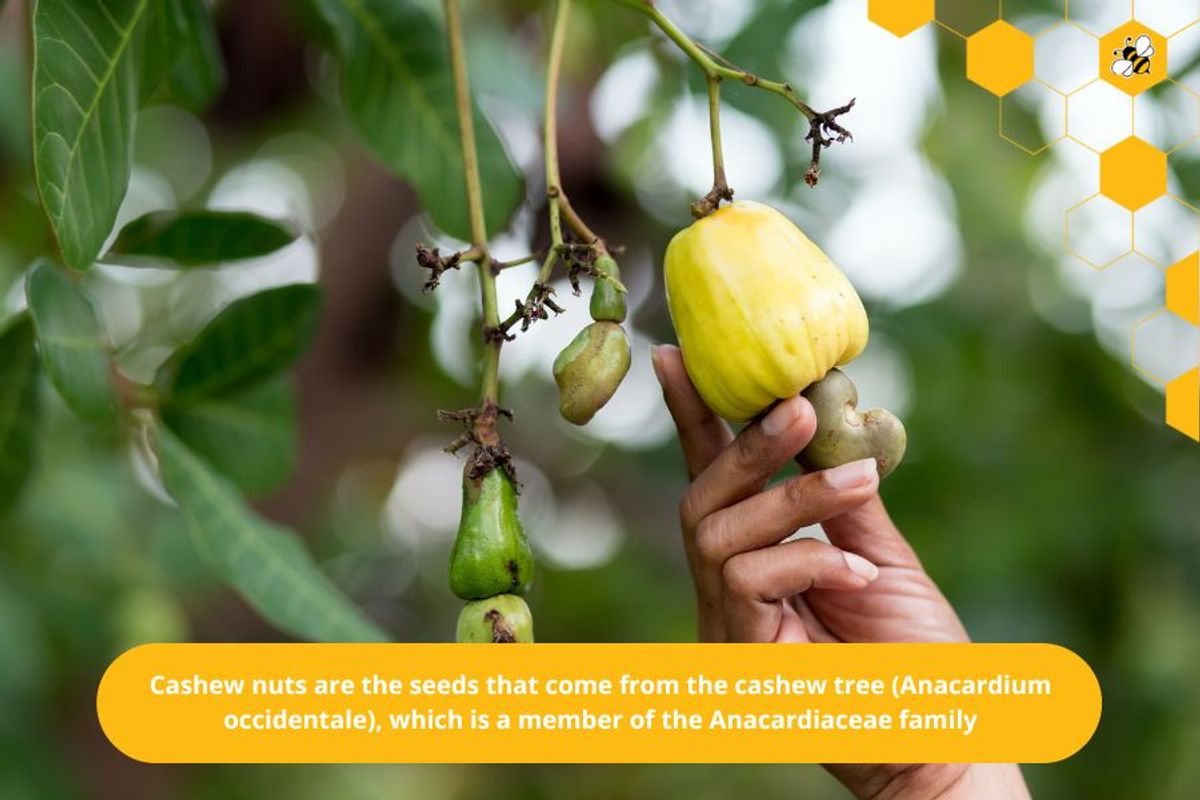
Characteristics of cashew trees
Cashew trees are one of the perennial industrial trees with high economic value in the Central Highlands and Southeast regions. Below are some characteristics of cashew trees:
Trunk and branches
The cashew tree trunk is about 5-10 meters high, some documents record it as about 3 meters to 9 meters. The trunk is short, the branches are long.
The trunk and branches of the cashew tree often contain a lot of latex, the tree canopy grows in an umbrella shape so it will have a large shade.
Cashew trees love light and can grow quickly in cool, airy areas with strong sunlight.
The trunk and branches of the cashew tree often contain a lot of latex, the tree canopy grows in an umbrella shape so it will have a large shade.
Cashew trees love light and can grow quickly in cool, airy areas with strong sunlight.
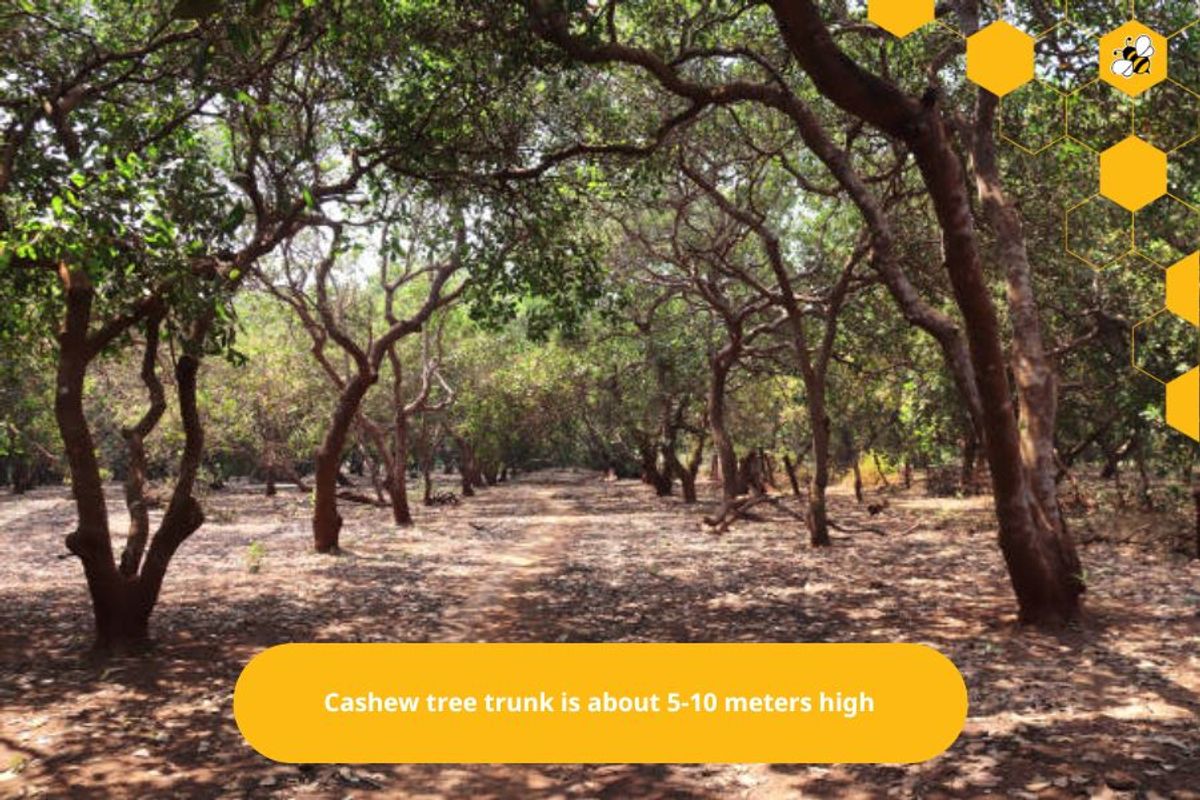
Leaves
The leaves of the cashew tree will usually grow mainly at the top of the branches.
The leaves are round and oval, about 10 - 20cm long, about 5 - 10cm wide. They grow alternately and have short petioles.
The leaves are round and oval, about 10 - 20cm long, about 5 - 10cm wide. They grow alternately and have short petioles.
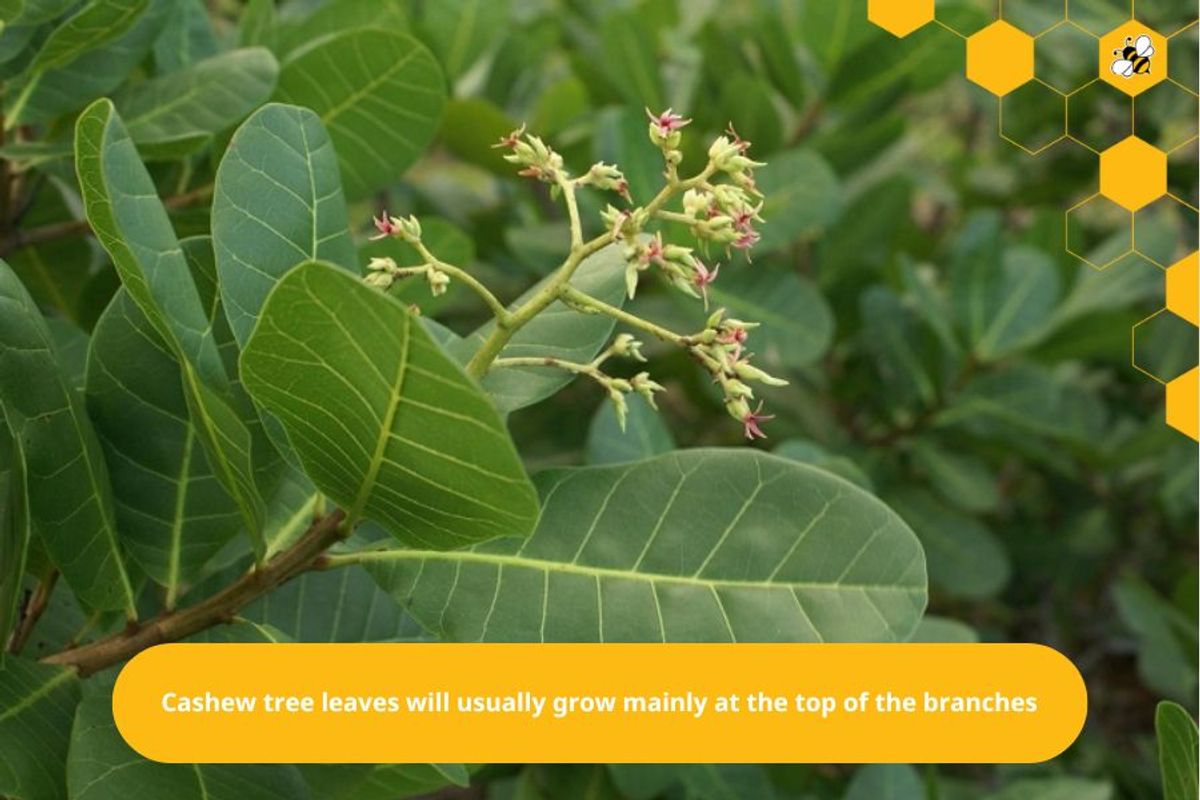
Roots
Cashew roots are taproots, with a strong horizontal root system that can search for nutrients to nourish the tree.
The roots of cashew trees can penetrate deep into the ground and spread in the soil below the canopy.
The roots of cashew trees can penetrate deep into the ground and spread in the soil below the canopy.
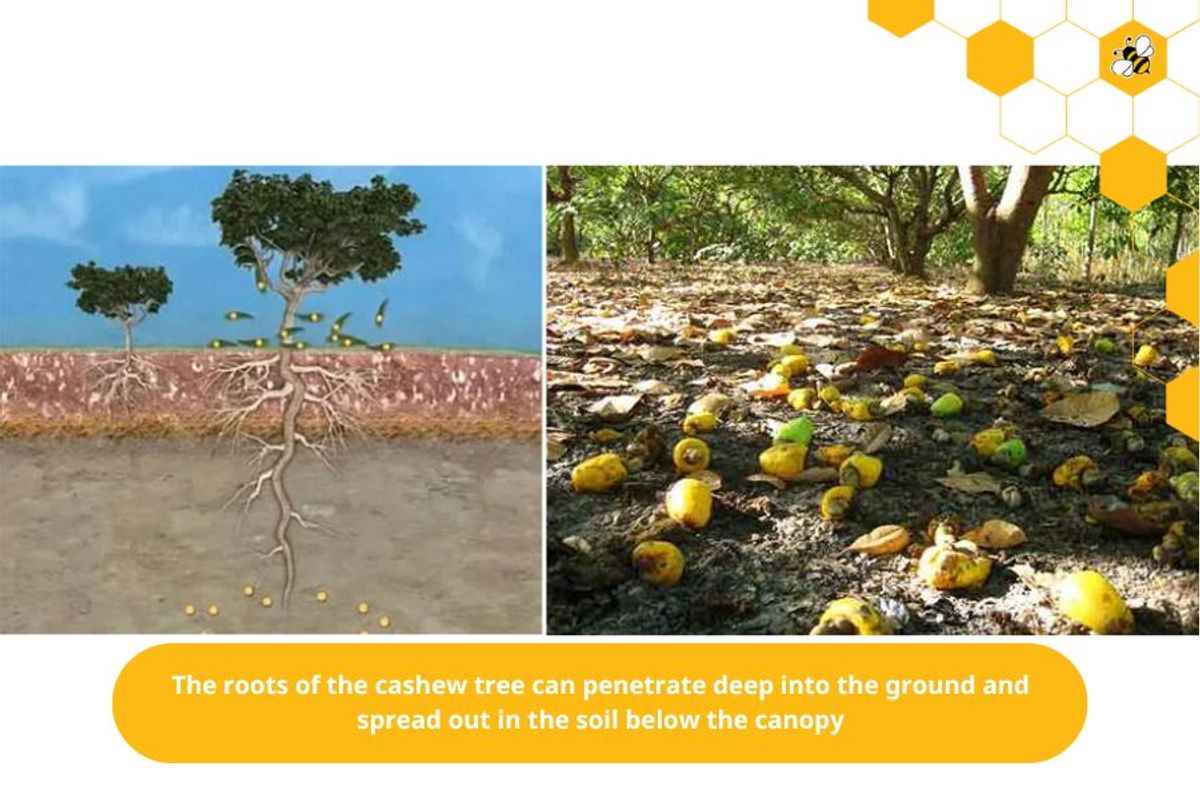
Flowers and Fruits
Cashew trees have bisexual flowers and male flowers that develop on the same flower stalk.
Cashew fruit is a rather unique fruit that can be used in both hot and cold seasons. Many people think that cashew fruit has a more fragrant smell than almonds.
Cashew fruit is a rather unique fruit that can be used in both hot and cold seasons. Many people think that cashew fruit has a more fragrant smell than almonds.
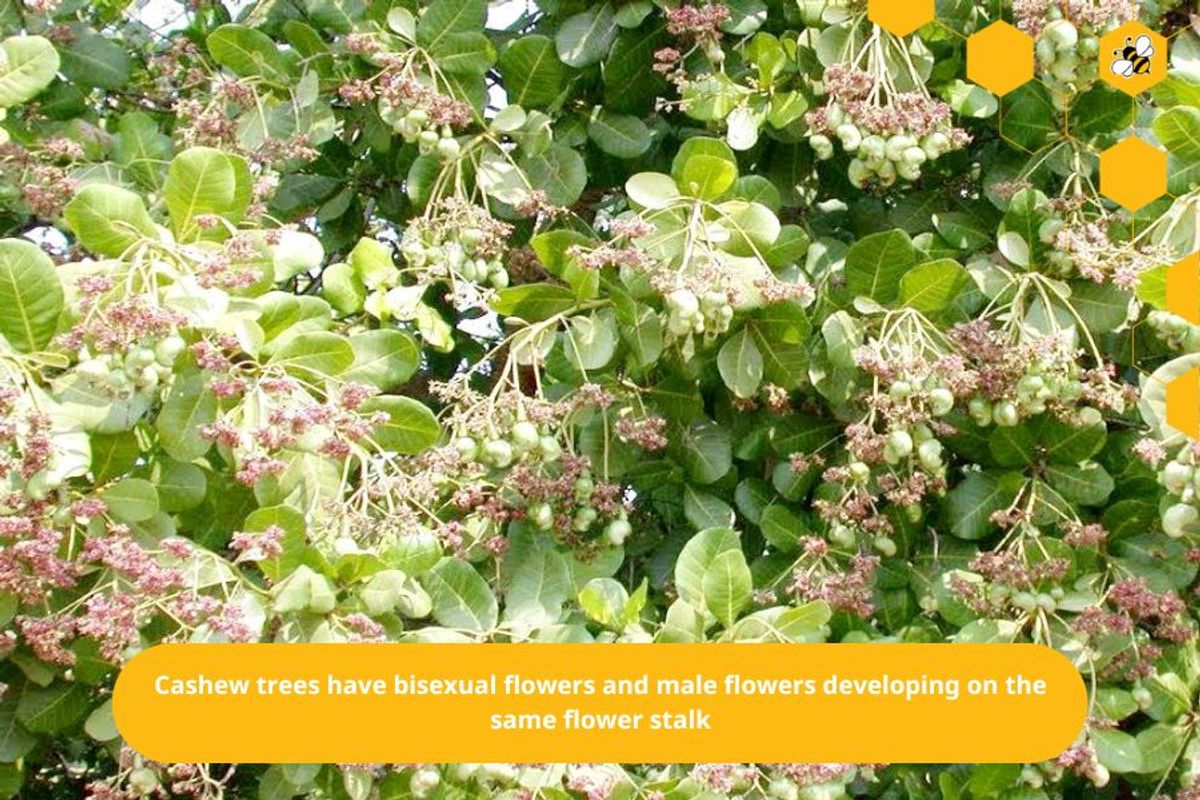
Lifespan and productivity
Cashew trees have an average lifespan of 40-50 years.
Stable productivity usually begins 10 years after planting.
Cashew trees not only have delicious nuts but also have many nutritional values and benefits for human health.
Stable productivity usually begins 10 years after planting.
Cashew trees not only have delicious nuts but also have many nutritional values and benefits for human health.
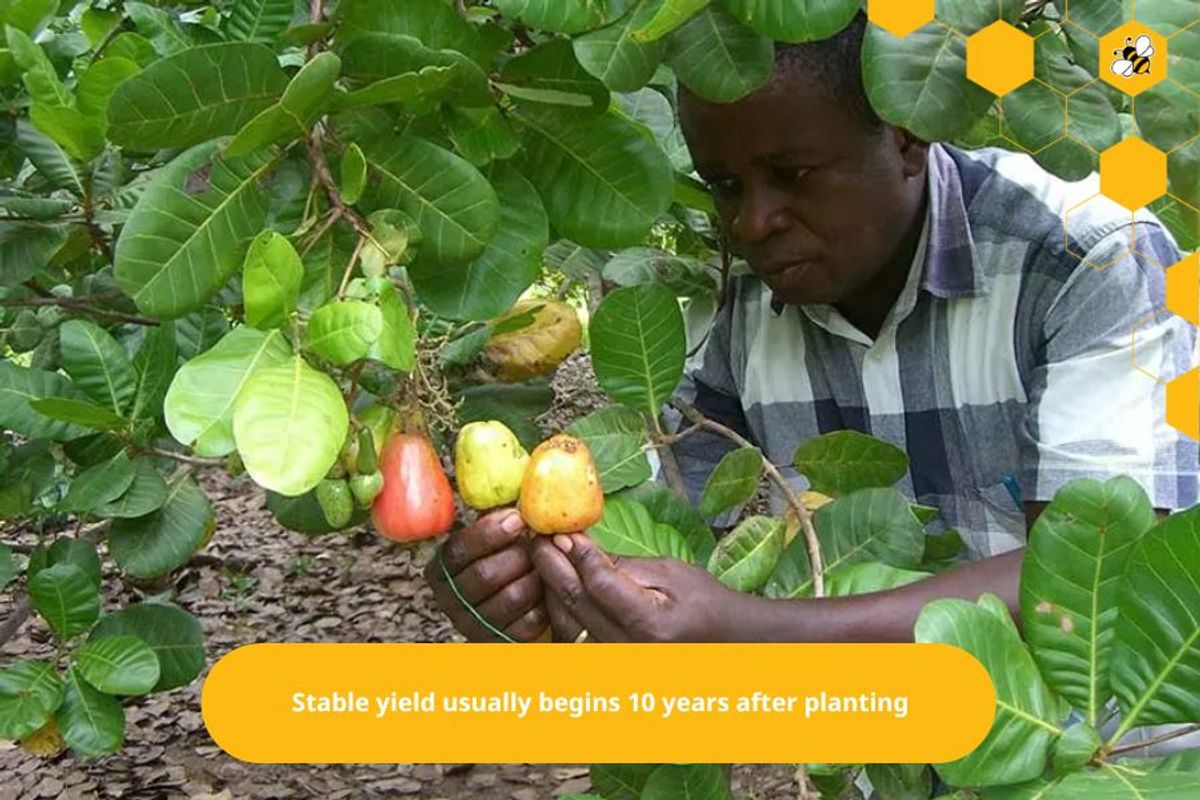
Overview of cashew trees
Cashew trees in English are called Cashew, their scientific name is Anacardium occidentale, belong to the Anacardiaceae Family.
Cashew trees have a fairly fast growth rate, a mature cashew tree usually ranges in height from 8 to 12 meters, and some trees growing in the wild have a height of up to 20 meters.
Cashew trees are bisexual and male flowers develop on the same flower stalk, classified as andromoney organisms.
The origin of cashew trees is Ceara state - Brazil.
Cashew trees have a fairly fast growth rate, a mature cashew tree usually ranges in height from 8 to 12 meters, and some trees growing in the wild have a height of up to 20 meters.
Cashew trees are bisexual and male flowers develop on the same flower stalk, classified as andromoney organisms.
The origin of cashew trees is Ceara state - Brazil.
Cashew is a unique fruit that can be used in both hot and cold seasons, and many people even say that it smells better than almonds.
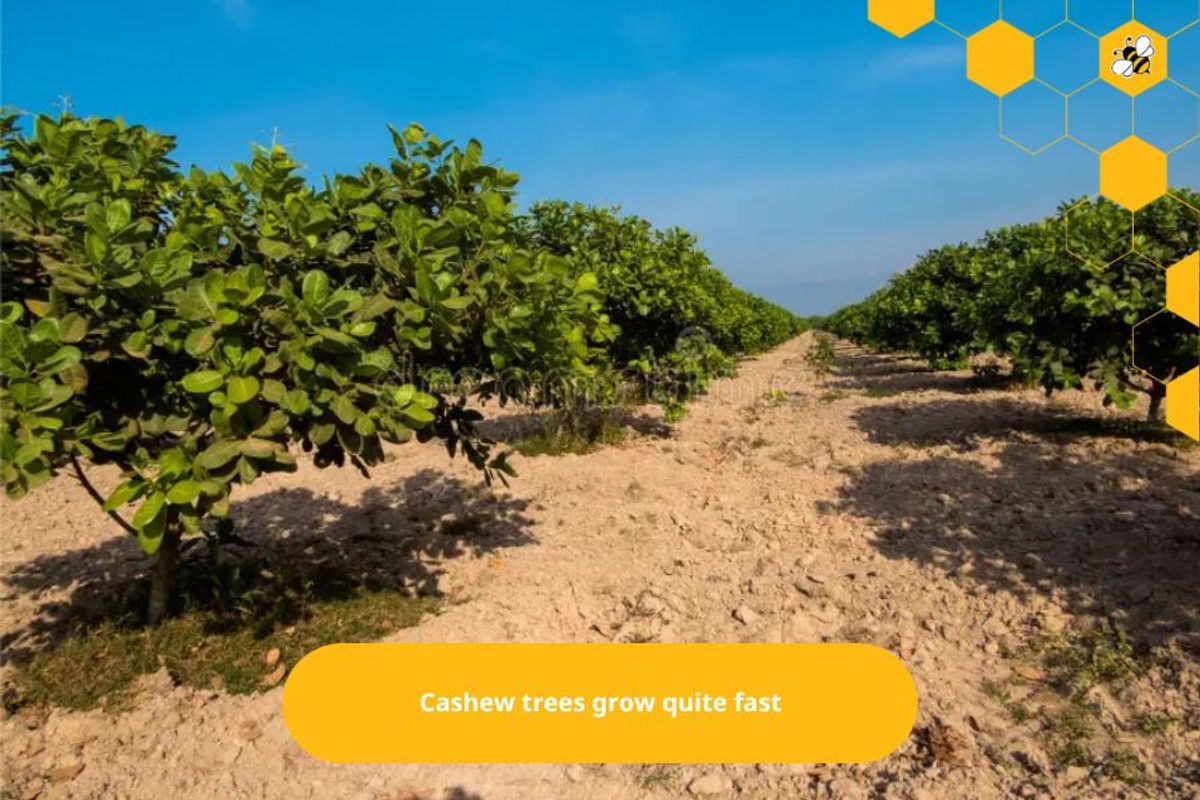
Special features of cashew (seeds on the outside)
Seeds on the outside: Cashew is a fruit with large seeds on the outside of the shell. When you look at a cashew, you will see that the cashew seed is under the shell, not hidden in the flesh like many other legumes. The seed is brown, flat, and crescent-shaped. This is the cashew nut.
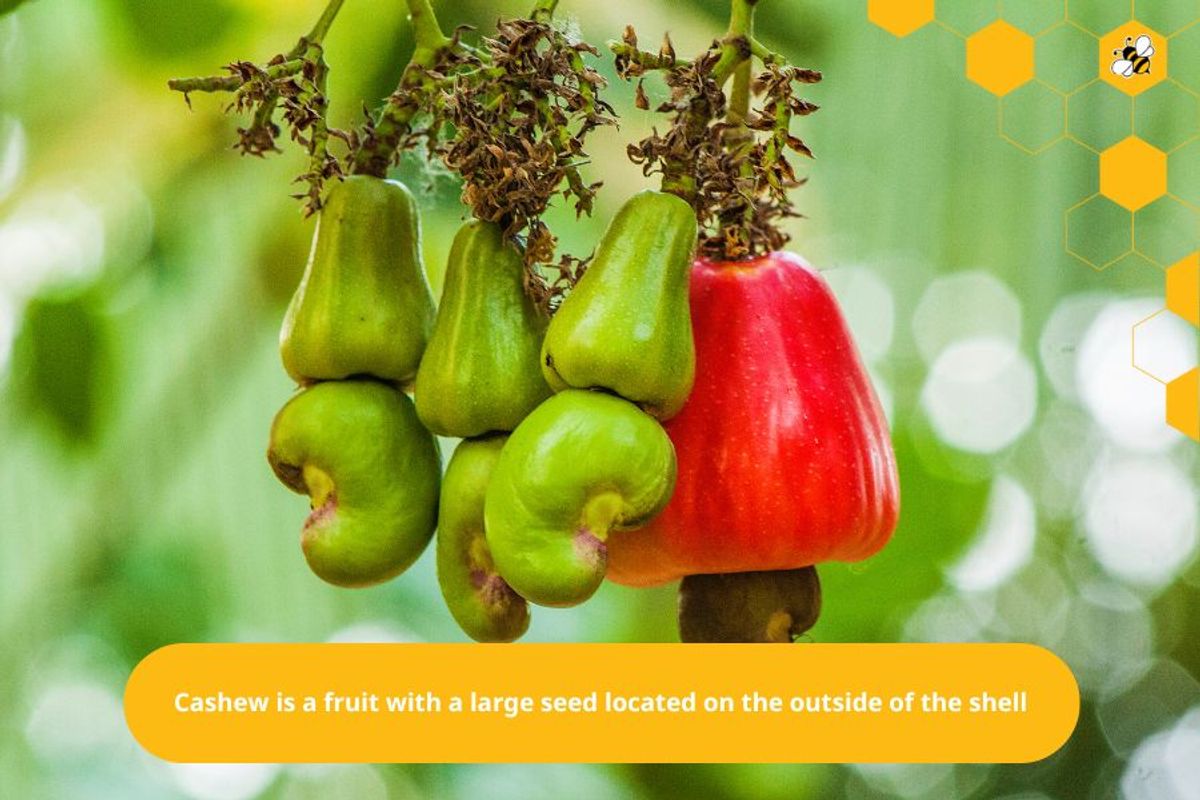
Shells and seeds: Cashew shells are quite hard and contain a unique oil called urushiol. This substance can cause skin irritation if it comes into direct contact. Therefore, when harvesting cashews, workers need to be careful and avoid contact with the shells.
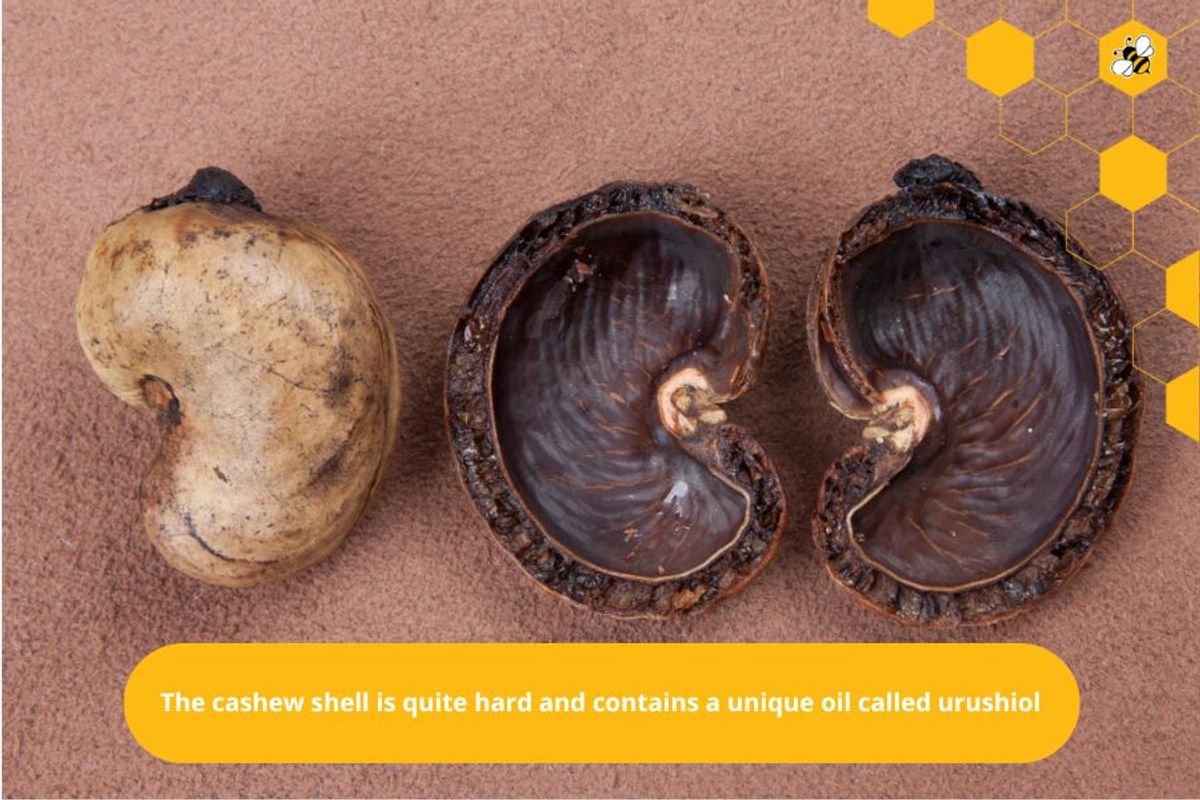
Cashews: Cashews are an important part of the cashew tree. They are rich in nutrients, including protein, fat, vitamins, and minerals. Cashews are often dried or roasted to create delicious crunchy cashews.
Uses: Cashews are often eaten directly, used as a spice for dishes, or processed into cashew butter. Cashew butter is a nutritious butter and is often used in cooking and baking.
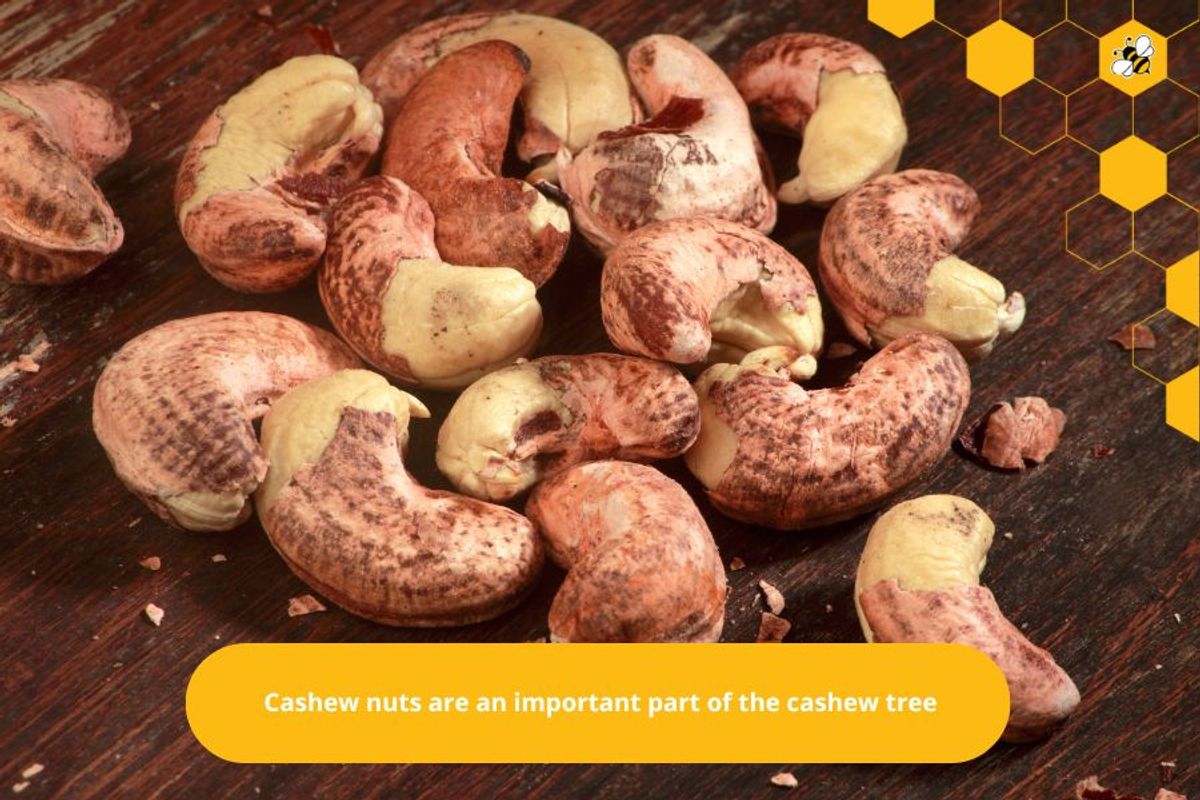
Cashew (Anacardium occidentale) is a tropical nut that is not only a delicious food but also brings many nutritional values to human health1. Here are some special points about cashews:
Shape and color:
Cashew has a variety of shapes, from pear-shaped, cylindrical, truncated cones to diamond-shaped.
The color of cashews varies from light yellow to bright red and may have green spots on the surface.
Size and weight:
The length of the cashew varies from 3 to 20 cm.
The width of the cashew ranges from 3 to 12 cm.
The weight of the cashew ranges from 30 to 150 g and can be up to 500 g for large fruits.
The seed is located on the outside:
The seed is located on the outside, under the protective shell.
Cashews are extracted from this part of the seed and are used to produce salted roasted cashews, cashew jam, cakes, and baked goods. Cashews can also be eaten raw and are often used in bird's nest dishes, salads, and drinks.
Shape and color:
Cashew has a variety of shapes, from pear-shaped, cylindrical, truncated cones to diamond-shaped.
The color of cashews varies from light yellow to bright red and may have green spots on the surface.
Size and weight:
The length of the cashew varies from 3 to 20 cm.
The width of the cashew ranges from 3 to 12 cm.
The weight of the cashew ranges from 30 to 150 g and can be up to 500 g for large fruits.
The seed is located on the outside:
The seed is located on the outside, under the protective shell.
Cashews are extracted from this part of the seed and are used to produce salted roasted cashews, cashew jam, cakes, and baked goods. Cashews can also be eaten raw and are often used in bird's nest dishes, salads, and drinks.
Cashews are not only delicious but also have many health benefits, including providing antioxidants, enhancing brain function, protecting the heart, and aiding digestion. The Southwest region of Vietnam is where high-quality cashews are grown and produced, and the Western cashews often have a distinctive, sweet taste and eye-catching color. They are widely used in Southern cuisine and have become an indispensable part of many delicious dishes such as salted roasted cashews, cashew jam, cashew salad, and drinks.
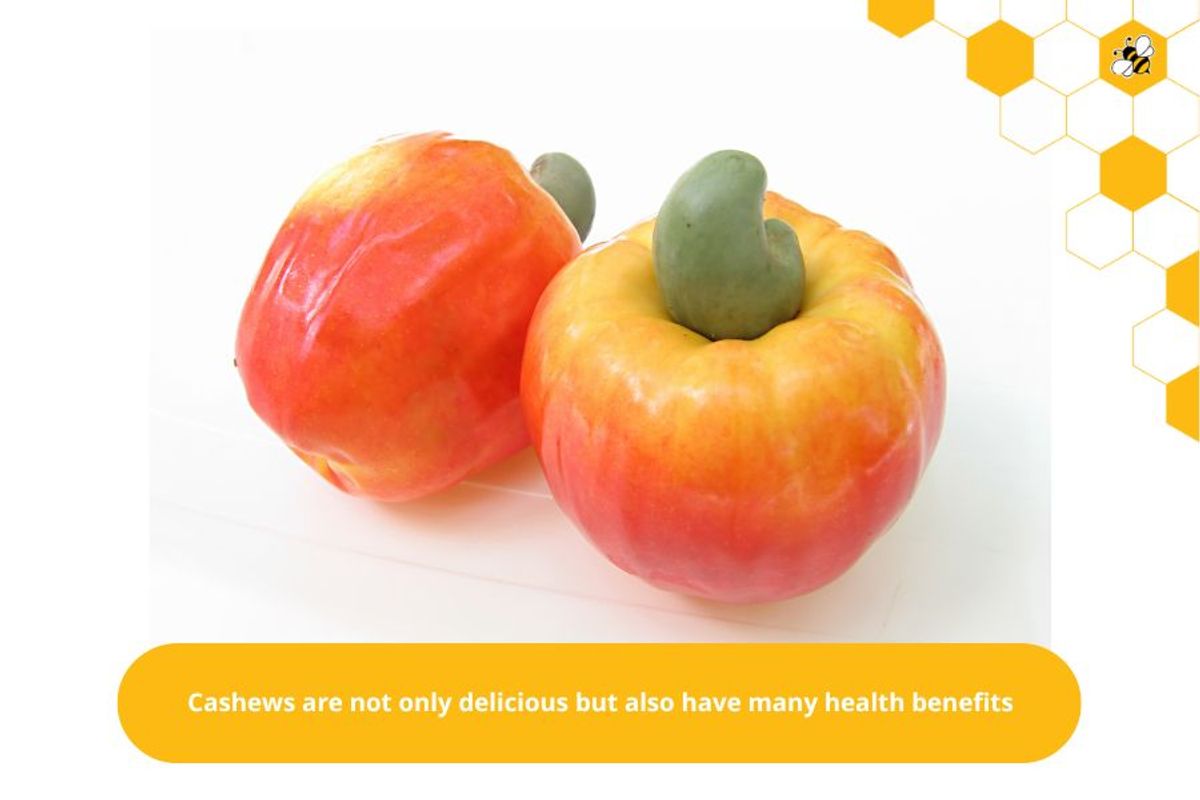
Summary
Cashews come from the cashew fruit (English: cashew). Cashews are a unique fruit, with the seed located outside the shell. They are rich in nutrients and are often used in cooking, baking, or eating directly. Cashews are an important part of the cashew tree, and they are dried or roasted to create delicious crunchy cashews. The above article has introduced you to everything related to cashews, hoping to help you understand the characteristics of cashews and cashews.